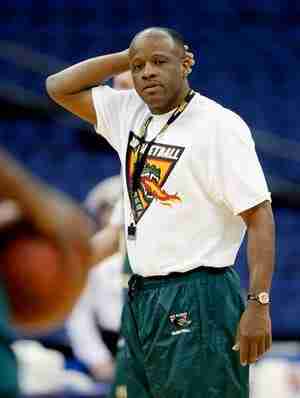
COLUMBUS, Ohio – UAB athletic director Watson Brown said Auburn has not contacted him to talk to Blazers basketball coach Mike Anderson about the Tigers coaching job.
Anderson, along with Tennessee-Chattanooga’s Jeff Lebo and Virginia Commonwealth’s Jeff Capel, have been mentioned as possible replacements for former Tigers coach Cliff Ellis, who was fired Thursday morning.
“I haven’t been contacted about Mike,” Brown said. “In the two years he’s been here, I’ve never been contacted.”
Anderson, in his two seasons at UAB, compiled a 41-21 record while turning around a Blazers basketball program that had slipped to a 13-17 record in the final year under current leadership of current East Tennessee State coach Murry Bartow.
Anderson signed a five-year contract in 2002 when he arrived in Birmingham to lead the Blazers and said he thought UAB was a place where a national championship could be won, and that’s where he was concentrating Thursday evening.
“Right now, that’s my goal,” Anderson said, before his team took the court at Nationwide Arena to practice for the Blazers’ first-round NCAA tournament game against the Huskies. Washington.
Anderson also realizes that rumors come with the territory.
“I think it’s flattering,” he said. “When you become successful, your name will be mentioned.”
Anderson and Brown said they have had conversations regarding the future and more discussions are planned.
“We made a strong commitment to the basketball program and to Mike,” Brown said. “I want Mike to be happy.”
This season, Anderson guided the Blazers to a 20-9 record and returned the program to the NCAA tournament for the first time since 1999.
In his freshman season, Anderson led UAB to a 21-13 record, advancing to the Conference USA championship game and the third round of the National Invitation Tournament.
Prior to his arrival in Birmingham, Anderson spent 17 years as an assistant coach for former Arkansas and Tulsa coach Nolan Richardson. The last eight seasons in Fayetteville, Anderson served as assistant head coach and recruiting coordinator.
During that time, the Razorbacks qualified for seven NCAA tournaments, including two Final Fours and the 1994 national championship.

